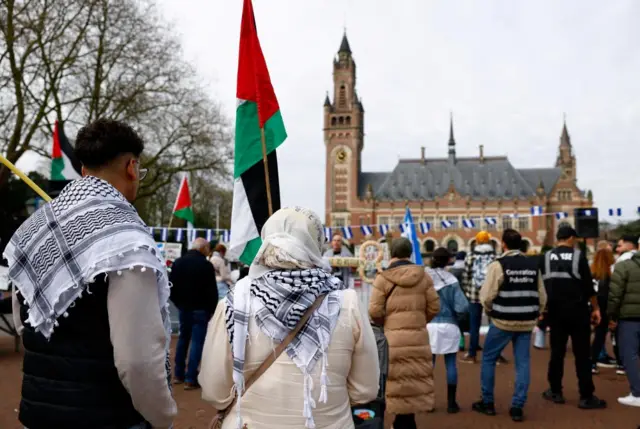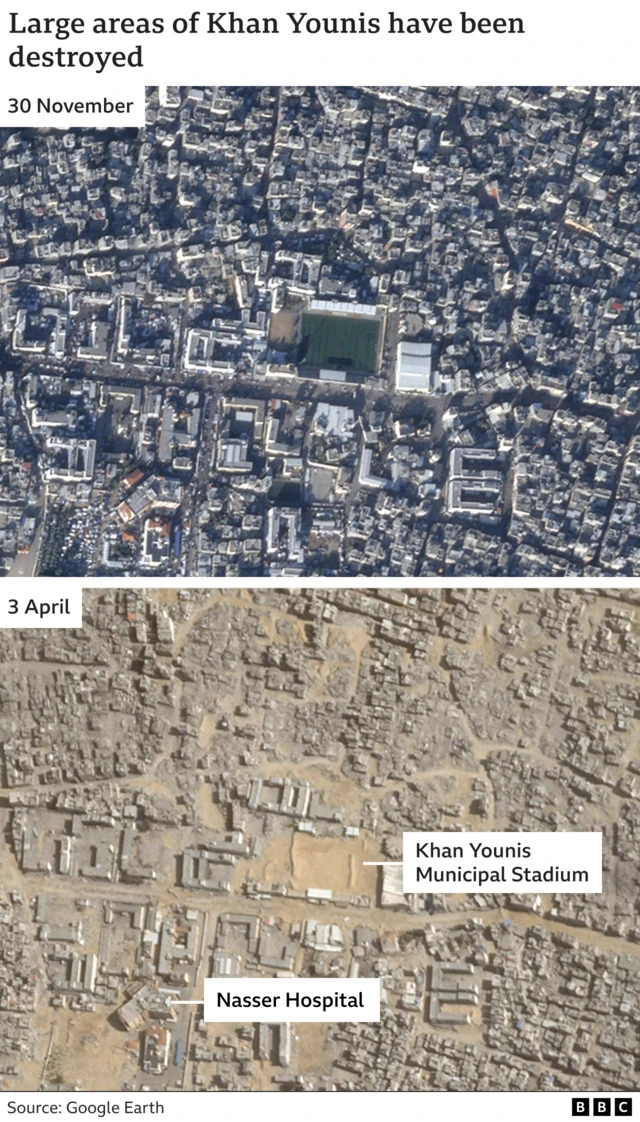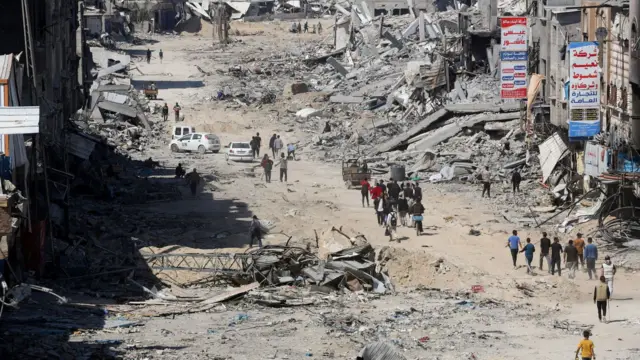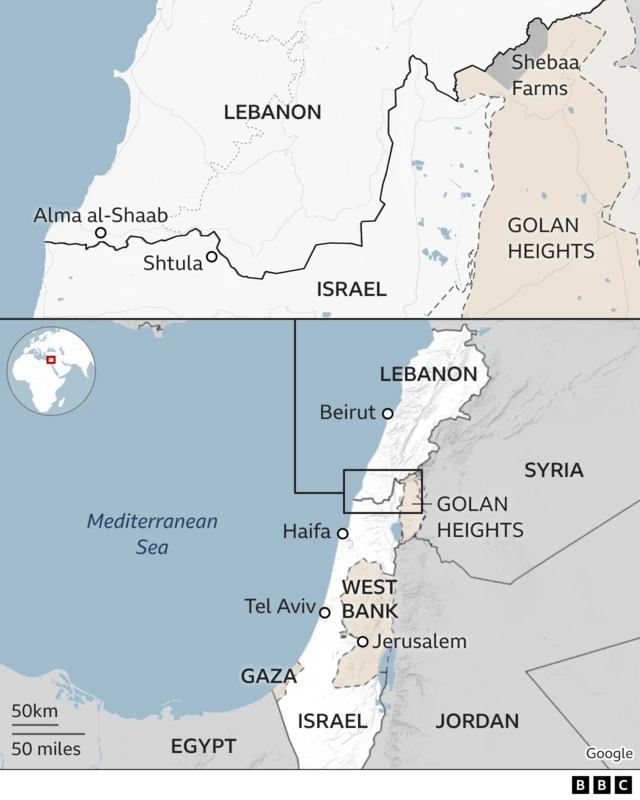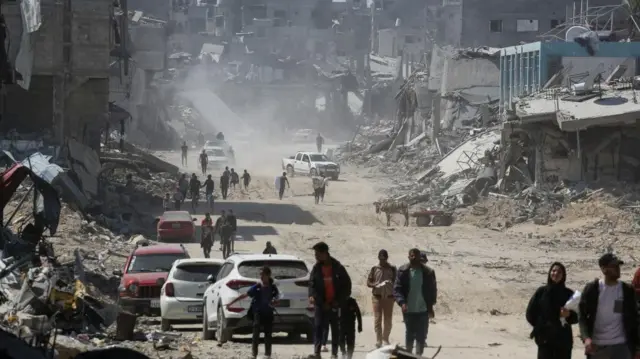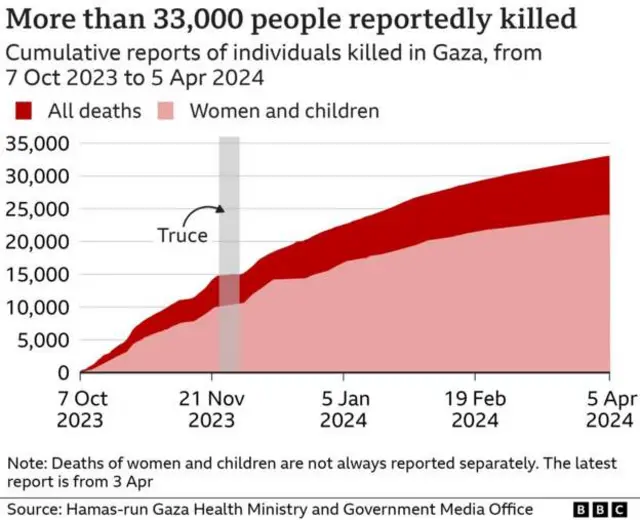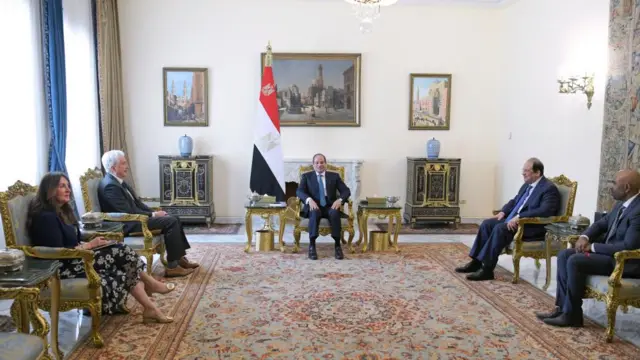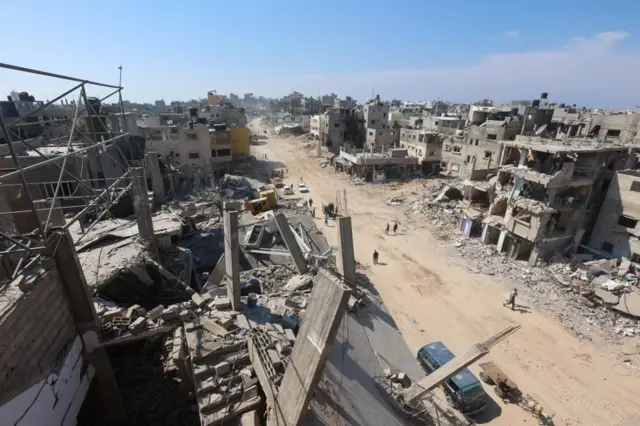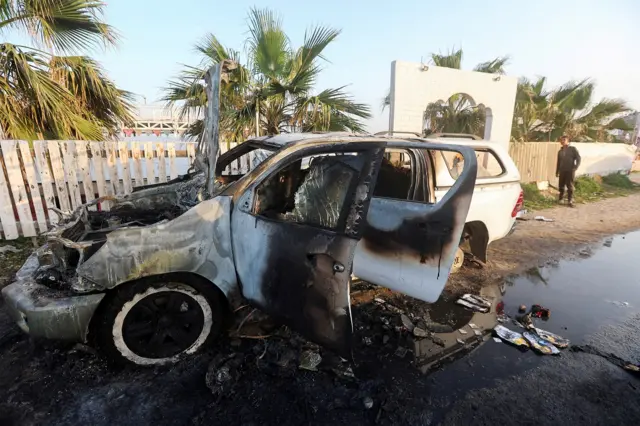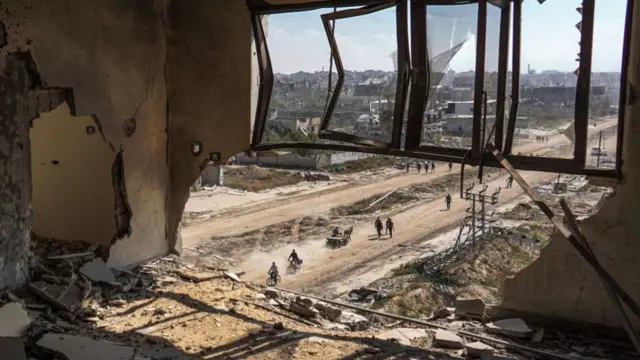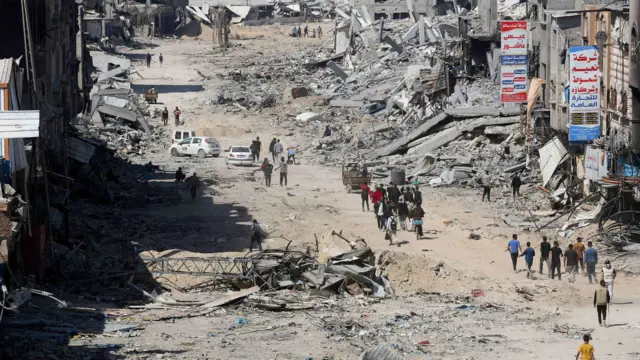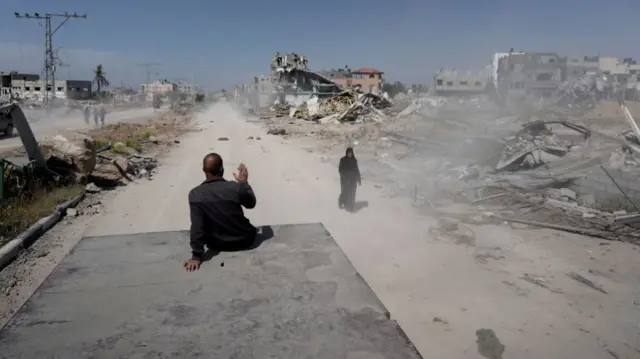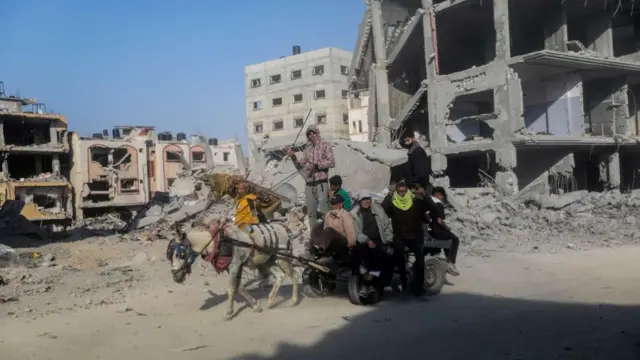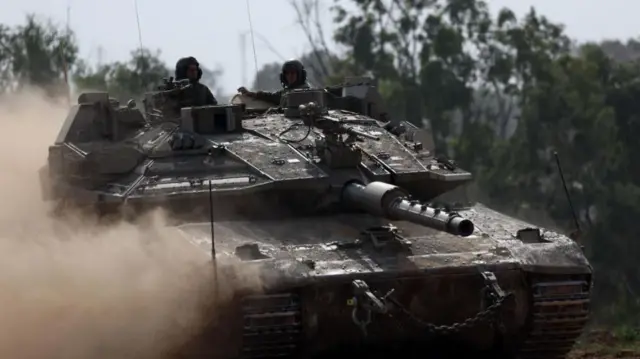'Thousands' of Palestinians journey back to Khan Younis, journalist sayspublished at 13:52 British Summer Time 8 April
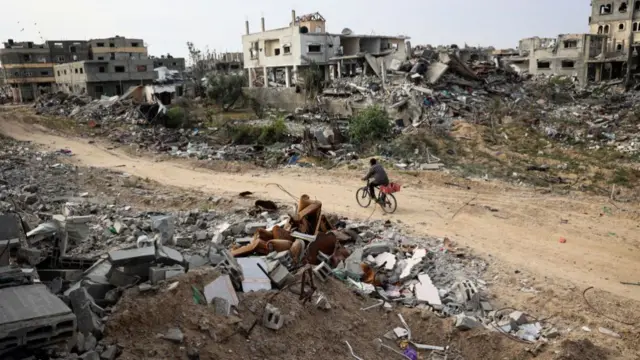 Image source, Getty Images
Image source, Getty ImagesEarlier, we explained how we were still trying to ascertain just how many people had begun making their way back to Khan Younis in the hours since the Israeli military withdrew from the city.
We are now hearing from a journalist in Gaza who estimates that there are "thousands" of displaced Palestinians who are now heading back there.
The journalist, named Akram, says that he returned to the southern Gaza city yesterday, where he says he saw the "full scale destruction" of the area.
Thousands of people were making the journey, to search for essential supplies or try to recover bodies from beneath rubble, Akram has just told the BBC's World at One.
The BBC is unable to independently verify the number of people returning to the city.
There are no police or aid agencies in Khan Younis, according to Akram.
